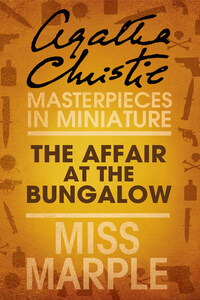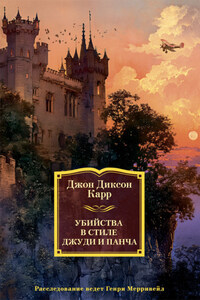Published by HarperCollinsPublishers Ltd 1 London Bridge Street London SE1 9GF www.harpercollins.co.uk
Copyright © 2008 Agatha Christie Ltd.
Cover design © HarperCollinsPublishers 2013
All rights reserved under International and Pan-American Copyright Conventions. By payment of the required fees, you have been granted the nonexclusive, nontransferable right to access and read the text of this e-book onscreen. No part of this text may be reproduced, transmitted, downloaded, decompiled, reverse engineered, or stored in or introduced into any information storage and retrieval system, in any form or by any means, whether electronic or mechanical, now known or hereinafter invented, without the express written permission of HarperCollins e-books.
Ebook Edition © OCTOBER 2013 ISBN 9780007526727
Version: 2017-04-13
HarperCollinsPublishers has made every reasonable effort to ensure that any picture content and written content in this ebook has been included or removed in accordance with the contractual and technological constraints in operation at the time of publication.
‘The Affair at the Bungalow’ was first published in Storyteller, May 1930.
‘I’ve thought of something,’ said Jane Helier.
Her beautiful face was lit up with the confident smile of a child expecting approbation. It was a smile such as moved audiences nightly in London, and which had made the fortunes of photographers.
‘It happened,’ she went on carefully, ‘to a friend of mine.’
Everyone made encouraging but slightly hypocritical noises. Colonel Bantry, Mrs Bantry, Sir Henry Clithering, Dr Lloyd and old Miss Marple were one and all convinced that Jane’s ‘friend’ was Jane herself. She would have been quite incapable of remembering or taking an interest in anything affecting anyone else.
‘My friend,’ went on Jane, ‘(I won’t mention her name) was an actress – a very well-known actress.’
No one expressed surprise. Sir Henry Clithering thought to himself: ‘Now I wonder how many sentences it will be before she forgets to keep up the fiction, and says “I” instead of “She”?’
‘My friend was on tour in the provinces – this was a year or two ago. I suppose I’d better not give the name of the place. It was a riverside town not very far from London. I’ll call it –’
She paused, her brows perplexed in thought. The invention of even a simple name appeared to be too much for her. Sir Henry came to the rescue.
‘Shall we call it Riverbury?’ he suggested gravely.
‘Oh, yes, that would do splendidly. Riverbury, I’ll remember that. Well, as I say, this – my friend – was at Riverbury with her company, and a very curious thing happened.’
She puckered her brows again.
‘It’s very difficult,’ she said plaintively, ‘to say just what you want. One gets things mixed up and tells the wrong things first.’
‘You’re doing it beautifully,’ said Dr Lloyd encouragingly. ‘Go on.’
‘Well, this curious thing happened. My friend was sent for to the police station. And she went. It seemed there had been a burglary at a riverside bungalow and they’d arrested a young man, and he told a very odd story. And so they sent for her.
‘She’d never been to a police station before, but they were very nice to her – very nice indeed.’
‘They would be, I’m sure,’ said Sir Henry.
‘The sergeant – I think it was a sergeant – or it may have been an inspector – gave her a chair and explained things, and of course I saw at once that it was some mistake –’
‘Aha,’ thought Sir Henry. ‘I. Here we are. I thought as much.’
‘My friend said so,’ continued Jane, serenely unconscious of her self-betrayal. ‘She explained she had been rehearsing with her understudy at the hotel and that she’d never even heard of this Mr Faulkener. And the sergeant said, “Miss Hel –”’
She stopped and flushed.
‘Miss Helman,’ suggested Sir Henry with a twinkle.
‘Yes – yes, that would do. Thank you. He said, “Well, Miss Helman, I felt it must be some mistake, knowing that you were stopping at the Bridge Hotel,” and he said would I have any objection to confronting – or was it being confronted? I can’t remember.’
‘It doesn’t really matter,’ said Sir Henry reassuringly.
‘Anyway, with the young man. So I said, “Of course not.” And they brought him and said, “This is Miss Helier,” and – Oh!’ Jane broke off open-mouthed.
‘Never mind, my dear,’ said Miss Marple consolingly. ‘We were bound to guess, you know. And you haven’t given us the name of the place or anything that really matters.’
‘Well,’ said Jane. ‘I did mean to tell it as though it happened to someone else. But it is difficult, isn’t it! I mean one forgets so.’
Everyone assured her that it was very difficult, and soothed and reassured, she went on with her slightly involved narrative.
‘He was a nice-looking man – quite a nice-looking man. Young, with reddish hair. His mouth just opened when he saw me. And the sergeant said, “Is this the lady?” And he said, “No, indeed it isn’t. What an ass I have been.” And I smiled at him and said it didn’t matter.’














